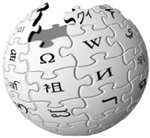
![]() Late last year, Nature Magazine let loose a small shockwave when it published results from a study that had compared science articles in Encyclopedia Britannica to corresponding entries in Wikipedia. Both encyclopedias, the study concluded, contain numerous errors, with Britannica holding only a slight edge in accuracy. Shaking, as it did, a great many assumptions of authority, this was generally viewed as a great victory for the five-year-old Wikipedia, vindicating its model of decentralized amateur production.
Late last year, Nature Magazine let loose a small shockwave when it published results from a study that had compared science articles in Encyclopedia Britannica to corresponding entries in Wikipedia. Both encyclopedias, the study concluded, contain numerous errors, with Britannica holding only a slight edge in accuracy. Shaking, as it did, a great many assumptions of authority, this was generally viewed as a great victory for the five-year-old Wikipedia, vindicating its model of decentralized amateur production.
Now comes this: a document (download PDF) just published on the Encyclopedia Britannica website claims that the Nature study was “fatally flawed”:
Almost everything about the journal’s investigation, from the criteria for identifying inaccuracies to the discrepancy between the article text and its headline, was wrong and misleading.
What are we to make of this? And if Britannica’s right, what are we to make of Nature? I can’t help but feel that in the end it doesn’t matter. Jabs and parries will inevitably be exchanged, yet Wikipedia continues to grow and evolve, containing multitudes, full of truth and full of error, ultimately indifferent to the censure or approval of the old guard. It is a fact: Wikipedia now contains over a million articles in english, nearly 223 thousand in Polish, nearly 195 thousand in Japanese and 104 thousand in Spanish; it is broadly consulted, it is free and, at least for now, non-commercial.
At the moment, I feel optimistic that in the long arc of time Wikipedia will bend toward excellence. Others fear that muddled mediocrity can be the only result. Again, I find myself not really caring. Wikipedia is one of those things that makes me hopeful about the future of the web. No matter how accurate or inaccurate it becomes, it is honest. Its messiness is the messiness of life.

Britannica hits back at Wikipedia study
BBC: In a document on their website, Encyclopaedia Britannica said that the Nature study contained “a pattern of sloppiness, indifference to basic scholarly standards, and flagrant errors so numerous they completely invalidated the results”. The schola…
Please see Nature’s response here
http://www.nature.com/press_releases/Britannica_response.pdf
We reject all of Britannica’s accusations and are confident that our comparison was fair.
I’m not sure what you mean to say if you don’t really care but still believe “No matter how accurate or inaccurate it becomes, it is honest.” People don’t usually set out to be dishonest, rather, they are just wrong. And that’s what we’re talking about. Who is less wrong?
I’m not talking about individual people being honest, I’m talking about Wikipedia being an honest representation of people’s knowledge — facts, flaws and all. It’s as good as we make it.
Most significant, its fallibility is built into its concept, whereas Britannica — while never going so far as to say it is entirely without error — asks to be read unquestioningly. When a person reads a Wikipedia page on a topic they know something about and finds it to be wrong or lacking that they can do something about it. Heeded or not, there is an implicit call to action. In a strange way, Wikipedia’s fallibility is its strength because it continually spurs us to improve.
Ultimately, I don’t care which one has the edge on accuracy. I care that we have both models, casting into relief their respective strengths and weaknesses. I’ll quote aTypical Joe, whose post tracks back above:
another round: britannica versus wikipedia
The Encyclopedia Britannica versus Wikipedia saga continues. As Ben has recently posted, Britannica has been confronting Nature on its article which found that the two encyclopedias were fairly equal in the accuracy of their science articles. Today, t…